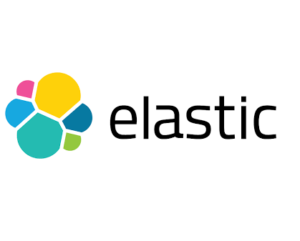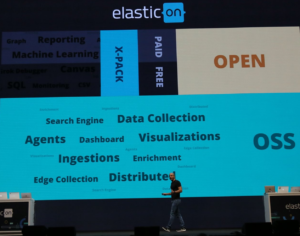
Elastic to Release Source Code for X-Pack

Elastic customers who pay for high-end enterprise features like machine learning in the X-Pack extension will no longer be relegated to a “second-class citizen” experience when working with the vendor to track down bugs or other issues. That’s because the source code for commercial software that Elastic developed to extend the stack will soon be opened, CEO Shay Banon announced yesterday.
“This is a big change for us,” Banon said during his keynote address before an announced crowd of 2,500 attendees at the company’s ElasticON conference in San Francisco. “I’m super excited about it. I can’t begin to explain how simple this will make things for us.”
While it might seem counter-intuitive, Elastic customers who used enterprise features in the company’s commercial add-on, called X-Pack, were upset about the quality of customer support they received with Elastic. The complaints are the result of different processes Elastic’s customer support organization uses to help X-pack users resolve issues versus how it interacted with customers who use its core open source Elastic stack, which includes Elasticsearch, Logstash, Kibana, and other tools.
“We’re taking all of our commercial IP … and we’re clicking ‘make public on GitHub,'” Banon said. “We’re going to take that and hopefully get to a level where we collaborate with you regardless of whether you end up being a [open source] user or a customer, across all of our products across the whole of the stack.”
Elastic offers two X-Pack packages. The basic version includes features like monitoring and was made free two years ago, while the other included advanced features like machine learning and graph analytics capabilities and requires payment. The problem was that even customers who used the free basic version of X-Pack were getting an inferior customer support experience compared to those who downloaded and used the open source products, Banon said
“The code is closed, you can’t open an issue, there’s a different issuing tracking system,” Banon explained. “The free features that we give you, which we truly believe every user of our stack should use, is not being used at the level we would like it to be, and in my mind it comes because of a lack of collaboration. We don’t have the level of collaboration that we believe we should have with you, even on code that’s not open source.”

Elastic CEO Shay Banon discusses the company’s new open source strategy at ElasticON (Image courtesy Elastic)
Beginning with the next release of Elastic, version 6.3, the entire Elastic stack, including the free X-Pack plug-in and the commercial X-Pack plug-in, will be available under an Apache 2.0 license. While the commercial X-Pack offering will be distributed under an open source license, it won’t be free.
The announcement came at the end of a two-and-a-half hour keynote address at the Masonic Auditorium, where Banon and a host of Elastic product managers shared the latest enhancement to the popular stack, and previewed a few new ones, including a new “roll-up” feature that will aggregate data, machine learning capabilities, geographic data analysis functions, and enhancements to its visualization tool, called Canvas.
Banon spent a bit of time explaining to the audience how commercial open source software companies like Elastic face a Catch-22 when it comes to balancing what to make open versus what to keep proprietor, and how much effort it should put into making its product simple versus allowing complexity to climb.
“The problem is that once you teach someone how to use your software and you don’t need to each them anymore, and they don’t need you anymore for all the right reasons, they won’t renew with you anymore as a business,” Banon said. “So you end up seeing companies that have been built around open source that have not been successful, saying ‘Help that customer, but don’t help them too much, so they’ll still need us when it comes to renewing. Teach them how to restart the server, but don’t really teach them what the actual problem with the feature is.’
“That’s something that we didn’t want to do,” he continued. “We didn’t want to create a system where we build a company that inherently competes with itself when it comes to trying to build a successful business.”
Creeping complexity also is a side effect when commercial open source company’s priorities run awry, Banon said. That’s due to another dynamic at play, whereby companies that strive toward simplicity gradually see their product support business dwindle as users find they no longer need help.
“We want to work toward simplifying as much as possible,” Banon said. “I won’t name names, but you can see products that businesses have built that only provide support around them atrophy toward [complexity].”
ElasticON runs through Thursday.
Related Items:
Weighing Open Source’s Worth for the Future of Big Data
Elastic Adds ‘One Click’ Anomaly Detection to Stack
Elastic Stack Searches for Bigger Data Problems
Editor’s note: This article has been corrected. The original headline, “Elastic to Make Entire Stack Open Source,” was replaced to reflect the fact that the Elastic stack has always been open source, and that only the X-Pack extension is being released as open source. Datanami regrets the error.






























